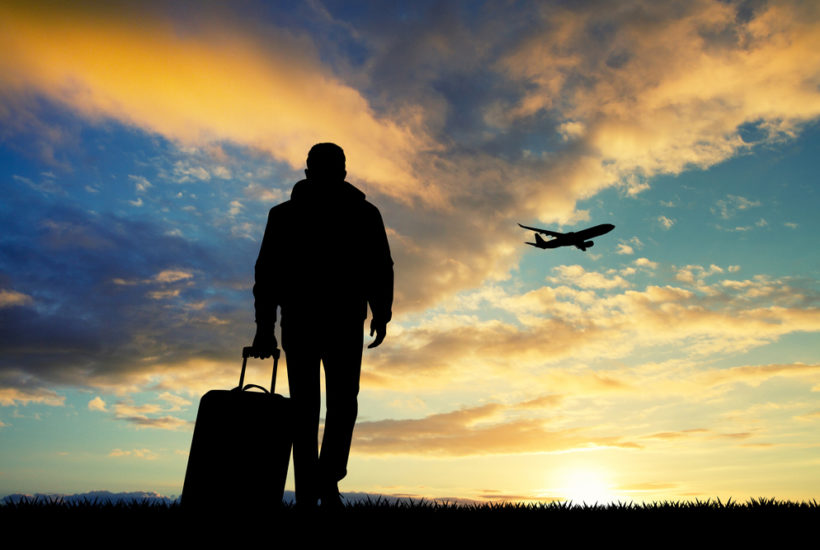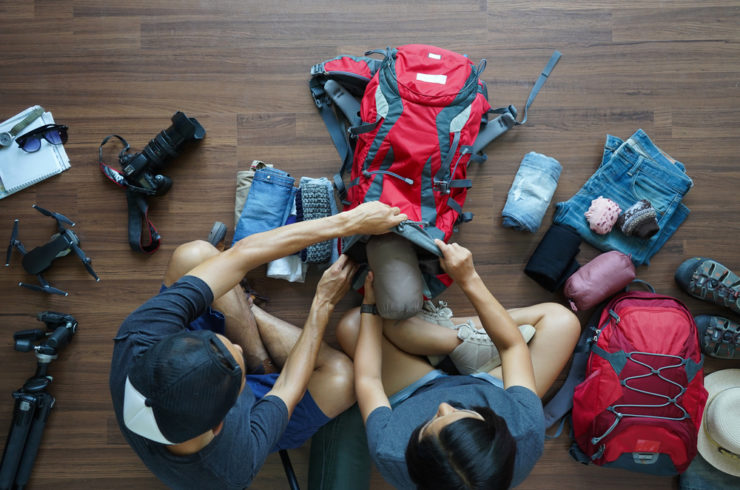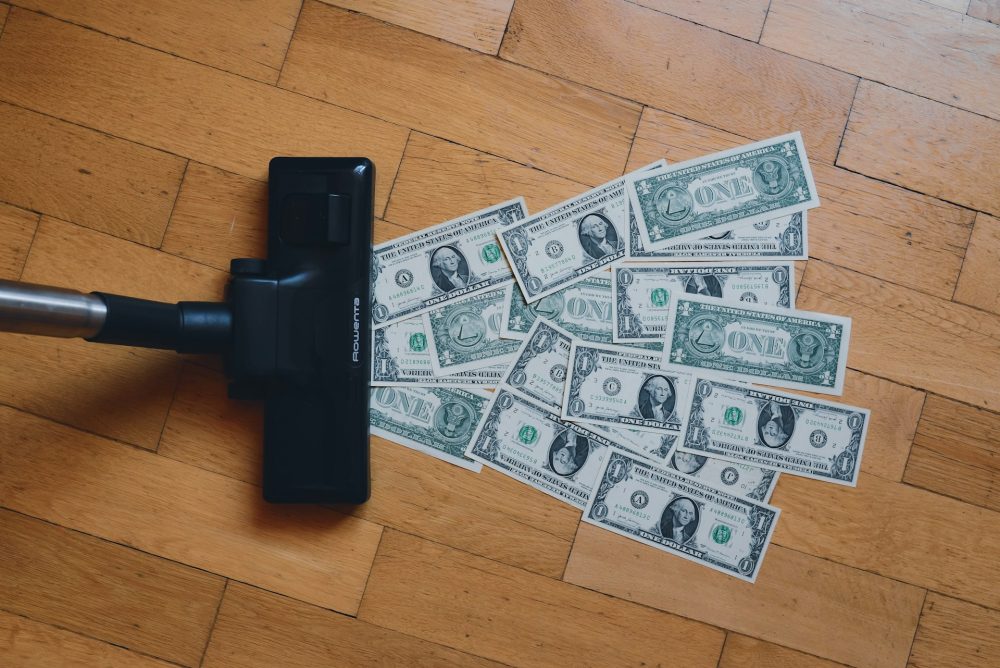Business
How to protect your privacy when you travel
Travelers are unknowingly at risk of privacy breaches while traveling.

It hasn’t been an easy year for the privacy of travelers, at least so far. Data breaches, surveillance worries and those troublesome cameras in airplane seatbacks and hotel rooms are enough to make passengers paranoid.
Maybe they should be.
“Travelers are particularly vulnerable to security threats because they are in a different environment with unfamiliar risks,” says Adam Dean, a senior security specialist with GreyCastle Security, a cybersecurity services provider in New York. “Generally speaking, travelers should assume they have no privacy and know that somebody is always watching.”
Fortunately, there are ways to safeguard your privacy on land and in the air. These tips can help you deal with cameras, data breaches, and visual hackers.
“Your privacy is being compromised pretty much everywhere,” warns France Bélanger, a frequent traveler and a business professor at Virginia Tech. Generally, the key to protecting your privacy is to limit access to your information, she says.
What to do about cameras
Airlines swear—swear!—that the cameras in their seatback entertainment systems are disabled. But cameras in other locations may not be. The most troubling ones are in vacation rentals, like the one an Indiana couple discovered in their Airbnb rental in Longboat Key, Florida.
“Some homeowners renting their residences through home-sharing services may install security cameras,” says Mike Tanenbaum, head of cyber for Chubb’s North America operation. “Travelers should find out if the hosts are required to disclose the presence of surveillance devices.”
If the rental comes with cameras, ensure they aren’t in a sensitive area by conducting a careful sweep. Report anything suspicious to the host immediately – and if you don’t like what you hear, leave.
What to do about data breaches
Although you can’t control how a hotel or airline handles—or mishandles—your data, you can take reasonable steps to ensure the information it has won’t get you into trouble. Some savvy travelers say they offer the bare minimum, such as a P.O. box instead of a home address.
But some of the worst data breaches happen when you’re staying at a hotel, according to Mike O’Rourke, the CEO of international security management consultancy Advanced Operational Concepts. For example, a hotel clerk sometimes asks for your name and then announces your room number after you’ve checked in. You’re better off handing the employee your ID when he or she asks for your name and asking the employee to write your room number on a piece of paper. Why? Because there are other people in the lobby, and they could be listening.
“I’ve seen my entire credit card number on hotel receipts,” O’Rourke says. “Just to be sure, never leave the customer copy behind. You can destroy it later, but keep it under your control until you do.”
What to do about nosy seatmates
People are watching. They see you typing your password on your laptop and read the content of your screen. The problem, called visual hacking, is serious. According to a study by 3M, more than 90% of visual hacking attempts are successful.
You need to take precautions when you’re on the road, says Josh McCormick, the vice president of operations for Mr. Electric, an electrical installation and repair services company. “Consider getting a privacy filter that covers your laptop or tablet,” he says. “These screens let the user see the content on the screen from a front-on view, while anyone trying to view the content from the next seat over will see a black screen and nothing else.”
Travelers say they are taking privacy seriously. Leon Rbibo, president of a Los Angeles-based jewelry store and a frequent traveler, says privacy is a “huge concern,” now more than ever. “Flying internationally poses a real challenge, between airlines, hotels, security and more,” he says.
Rbibo already uses a privacy screen for his computer, but also packs an RFID wallet, avoids hotel safes and uses a burner phone.
A burner phone? Yep.
You don’t have to be involved in illegal activities to carry a burner phone. My whole life is on my cellphone. When I travel, I sometimes find it more convenient to bring a cheap, essentially disposable phone with me rather than risk my personal cellphone being stolen.
It’s clear that when it comes to privacy, travelers are hitting some turbulence. And while there’s no quick fix for many of these privacy problems, you can minimize your exposure with the help of these expert strategies.

More ways to enhance your privacy when you travel
• Don’t broadcast your itinerary on social media. “Don’t declare on Facebook that you’re traveling to somewhere, alerting a wide range of people that your property is sitting empty,” says Danny McLoughlin, a content director for a review site and a frequent traveler. “That puts your security at risk.” Wait until you return to start posting vacation photos.
• Get a virtual private network. “The No. 1 danger, when it comes to privacy, is public Wi-Fi hotspots,” says Dimitar Dobrev, a director for VPNArea, a VPN provider. “They can be faked by hackers to allow them full access to your information.” A VPN can protect you.
• If your laptop or any storage devices are reviewed at customs or appear to have been moved in your hotel room, you should assume that your drive has been copied, says Bruce McIndoe, founder of WorldAware, a travel risk management firm. “Only take the bare essentials when you are traveling,” he advises. “A travel laptop stripped of any nonessential files is a good strategy. Keep your laptop locked up when you are leaving your room. Do not leave it or any electronic devices unattended.”
(Featured image by DepositPhotos)
—
DISCLAIMER: This article expresses my own ideas and opinions. Any information I have shared are from sources that I believe to be reliable and accurate. I did not receive any financial compensation for writing this post, nor do I own any shares in any company I’ve mentioned. I encourage any reader to do their own diligent research first before making any investment decisions.

-

 Crypto2 weeks ago
Crypto2 weeks agoIntesa Sanpaolo Signals Institutional Shift With Major Bitcoin ETF Investments
-

 Cannabis7 hours ago
Cannabis7 hours agoBrewDog Sale Leaves Thousands of Crowdfunding Investors Empty-Handed
-

 Markets1 week ago
Markets1 week agoRice Market Slips as Global Price Pressure and Production Concerns Grow
-

 Biotech4 days ago
Biotech4 days agoInterministerial Commission on Drug Prices Approves New Drugs and Expanded Treatment Funding






















